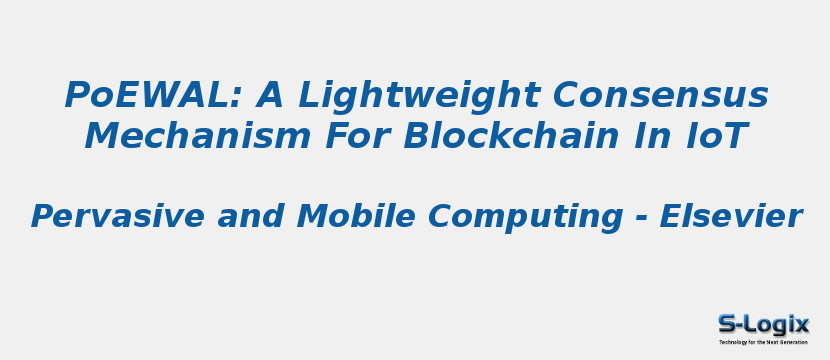Research Area: Internet of Things
Blockchain in IoT applications obviates the need for dependence on a single trusted authority,enhancing the potential for scalability and reliability.Existing consensus methods used in blockchain require high energy consumption, massive computational power with trusted authorities, or proof for mining a block.Resource constrained IoT devices need a lightweight and low latency consensus mechanism. Trust-free probabilistic consensus methods allow every node to participate in the consensus, enhancing the robustness and reliability of transactions as compared to absolute consensus methods.We propose a lightweight probabilistic proof of elapsed work and luck (PoEWAL) consensus method for non-cooperative blockchain in IoT environments.PoEWAL consumes less energy,requires less computational power and has low latency.We analyzed suitability of PoEWAL for resource constrained devices, using Contiki Cooja simulator.Experimental results show that energy consumption is low at various difficulty levels,demonstrating the feasibility of PoEWAL. Furthermore,PoEWAL is compared with such existing probabilistic consensus methods as proof of work,proof of stake, proof of activity,algorand,and proof of authority, in terms of energy,consensus time,and network latency, to confirm that PoEWAL is a suitable consensus method for blockchain in IoT.
Keywords:
Author(s) Name: Raghav,Nitish Andola,S.Venkatesan,Shekhar Verma
Journal name: Pervasive and Mobile Computing
Conferrence name:
Publisher name: Elsevier B.V
DOI: https://doi.org/10.1016/j.pmcj.2020.101291
Volume Information: Volume 69, November 2020, 101291
